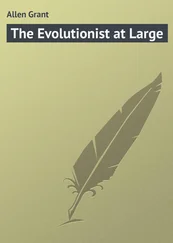Grant Allen - Strange Stories
Здесь есть возможность читать онлайн «Grant Allen - Strange Stories» — ознакомительный отрывок электронной книги совершенно бесплатно, а после прочтения отрывка купить полную версию. В некоторых случаях можно слушать аудио, скачать через торрент в формате fb2 и присутствует краткое содержание. Жанр: foreign_prose, на английском языке. Описание произведения, (предисловие) а так же отзывы посетителей доступны на портале библиотеки ЛибКат.
- Название:Strange Stories
- Автор:
- Жанр:
- Год:неизвестен
- ISBN:нет данных
- Рейтинг книги:3 / 5. Голосов: 1
-
Избранное:Добавить в избранное
- Отзывы:
-
Ваша оценка:
- 60
- 1
- 2
- 3
- 4
- 5
Strange Stories: краткое содержание, описание и аннотация
Предлагаем к чтению аннотацию, описание, краткое содержание или предисловие (зависит от того, что написал сам автор книги «Strange Stories»). Если вы не нашли необходимую информацию о книге — напишите в комментариях, мы постараемся отыскать её.
Strange Stories — читать онлайн ознакомительный отрывок
Ниже представлен текст книги, разбитый по страницам. Система сохранения места последней прочитанной страницы, позволяет с удобством читать онлайн бесплатно книгу «Strange Stories», без необходимости каждый раз заново искать на чём Вы остановились. Поставьте закладку, и сможете в любой момент перейти на страницу, на которой закончили чтение.
Интервал:
Закладка:
Marian and I stared at one another in blank horror. What on earth was to be done? All solutions were equally impossible. Even to meet Chung at dinner was terrible. We both knew in our heart of hearts that if Chung had been an Englishman, remaining in heart and soul the very self-same man he was, we would willingly have chosen him for Effie's husband. But a Chinaman! Reason about the prejudice as you like, there it is, a thing not to be got over, and at bottom so real that even the very notion of getting over it is terribly repugnant to our natural instincts. On the other hand, was poor Chung, with his fine delicate feelings, his courteous manners, his cultivated intellect, his English chivalry, to go back among the savage semi-barbarians of Pekin, and to be put to death in Heaven knows what inhuman manner for the atrocious crime of having outstripped his race and nation? The thing was too awful to contemplate either way.
We walked home together without a word. Chung had taken the lower path; we took the upper one and followed him at a distance. Effie remained behind for a while in the summer-house. I don't know how we managed to dress for dinner, but we did somehow; and when we went down into the little drawing-room at eight o'clock, we were not surprised to hear that Miss Effie had a headache and did not want any dinner that evening. I was more surprised, however, when, shortly before the gong sounded, one of the servants brought me a little twisted note from Chung, written hurriedly in pencil, and sent, she said, by a porter from the railway station. It ran thus: —
"Dear Mr. Walters,
"Excuse great haste. Compelled to return to town immediately. Shall write more fully to-morrow. Just in time to catch up express.
"Yours ever, "Chung."Evidently, instead of returning to the house, he had gone straight to the station. After all, Chung had the true feelings of a gentleman. He could not meet Effie again after what had passed, and he cut the Gordian knot in the only way possible.
Effie said nothing to us, and we said nothing to Effie, except to show her Chung's note next morning in a casual, off-hand fashion. Two days later a note came for us from the Embassy in Chung's pretty incisive handwriting. It contained copious excuses for his hasty departure, and a few lines to say that he was ordered back to China by the next mail, which started two days later. Marian and I talked it all over, but we could think of nothing that could be of any use; and after all, we said to one another, poor Chung might be mistaken about the probable fate that was in store for him.
"I don't think," Effie said, when we showed her the letter, "I ever met such a nice man as Mr. Chung. I believe he is really a hero." We pretended not to understand what she could mean by it.
The days went by, and we went back again to the dull round of London society. We heard nothing more of Chung for many weeks; till at last one morning I found a letter on the table bearing the Hong Kong postmark. I opened it hastily. As I supposed, it was a note from Chung. It was written in a very small hand on a tiny square of rice-paper, and it ran as follows: —
"Thien-Shan Prison, Pekin, Dec. 8.
"My dear Friend,
"Immediately on my return here I was arrested on a charge of witchcraft, and of complicity with the Foreign Devils to introduce the Western barbarism into China. I have now been in a loathsome prison in Pekin for three weeks, in the midst of sights and sounds which I dare not describe to you. Already I have suffered more than I can tell; and I have very little doubt that I shall be brought to trial and executed within a few weeks. I write now begging you not to let Miss Effie hear of this, and if my name happens to be mentioned in the English papers, to keep my fate a secret from her as far as possible. I trust to chance for the opportunity of getting this letter forwarded to Hong Kong, and I have had to write it secretly, for I am not allowed pen, ink, or paper. Thank you much for your very great kindness to me. I am not sorry to die, for it is a mistake for a man to have lived outside the life of his own people, and there was no place left for me on earth. Good-bye.
"Ever yours gratefully, "Chung."The letter almost drove me wild with ineffectual remorse and regret. Why had I not tried to persuade Chung to remain in England? Why had I not managed to smuggle him out of the way, and to find him some kind of light employment, such as even a Chinaman might easily have performed? But it was no use regretting now. The impassable gulf was fixed between us; and it was hardly possible even then to realize that this amiable young student, versed in all the science and philosophy of the nineteenth century, had been handed over alive to the tender mercies of a worse than mediæval barbarism and superstition. My heart sank within me, and I did not venture to show the letter even to Marian.
For some weeks the days passed heavily indeed. I could not get Chung out of my mind, and I saw that Effie could not either. We never mentioned his name; but I noticed that Effie had got from Mudie's all the books about China that she could hear of, and that she was reading up with a sort of awful interest all the chapters that related to Chinese law and Chinese criminal punishments. Poor child, the subject evidently enthralled her with a terrible fascination; and I feared that the excitement she was in might bring on a brain fever.
One morning, early in April, we were all seated in the little breakfast-room about ten o'clock, and Effie had taken up the outside sheet of the Times , while I was engaged in looking over the telegrams on the central pages. Suddenly she gave a cry of horror, flung down the paper with a gesture of awful repugnance, and fell from her chair as stiff and white as a corpse. I knew instinctively what had happened, and I took her up in my arms and carried her to her room. After the doctor had come, and Effie had recovered a little from the first shock, I took up the paper from the ground where it lay and read the curt little paragraph which contained the news that seemed to us so terrible: —
"The numerous persons who made the acquaintance of Chung Fo Tsiou, late assistant interpreter to the Chinese Embassy in London, will learn with regret that this unfortunate member of the Civil Service has been accused of witchcraft and executed at Pekin by the frightful Chinese method known as the Heavy Death. Chung Fo Tsiou was well known in London and Paris, where he spent many years of his official life, and attracted some attention by his natural inclination to European society and manners."
Poor Chung! His end was too horrible for an English reader even to hear of it. But Effie knew it all, and I did not wonder that the news should have affected her so deeply.
Effie was some weeks ill, and at first we almost feared her mind would give way under the pressure. Not that she had more than merely liked poor Chung, but the sense of horror was too great for her easily to cast it off. Even I myself did not sleep lightly for many and many a day after I heard the terrible truth. But while Effie was still ill, a second letter reached us, written this time in blood with a piece of stick, apparently on a scrap of coarse English paper, such as that which is used for wrapping up tobacco. It was no more than this: —
"Execution to-day. Keep it from Miss Effie. Cannot forgive myself for having spoken to her. Will you forgive me? It was the weakness of a moment: but even Chinamen have hearts. I could not die without telling her. – Chung."
I showed Effie the scrap afterwards – it had come without a line of explanation from Shanghao – and she has kept it ever since locked up in her little desk as a sacred memento. I don't doubt that some of these days Effie will marry; but as long as she lives she will bear the impress of what she has suffered about poor Chung. An English girl could not conceivably marry a Chinaman; but now that Chung is dead, Effie cannot help admiring the steadfastness, the bravery, and the noble qualities of her Chinese lover. It is an awful state of things which sometimes brings the nineteenth century and primitive barbarism into such close and horrible juxtaposition.
Читать дальшеИнтервал:
Закладка:
Похожие книги на «Strange Stories»
Представляем Вашему вниманию похожие книги на «Strange Stories» списком для выбора. Мы отобрали схожую по названию и смыслу литературу в надежде предоставить читателям больше вариантов отыскать новые, интересные, ещё непрочитанные произведения.
Обсуждение, отзывы о книге «Strange Stories» и просто собственные мнения читателей. Оставьте ваши комментарии, напишите, что Вы думаете о произведении, его смысле или главных героях. Укажите что конкретно понравилось, а что нет, и почему Вы так считаете.












